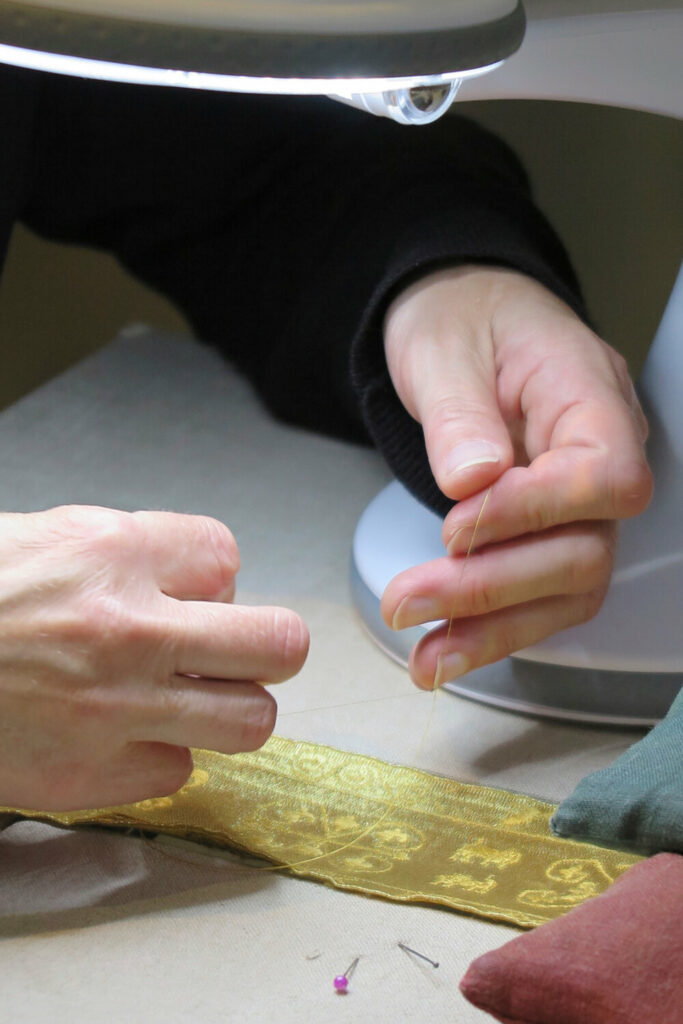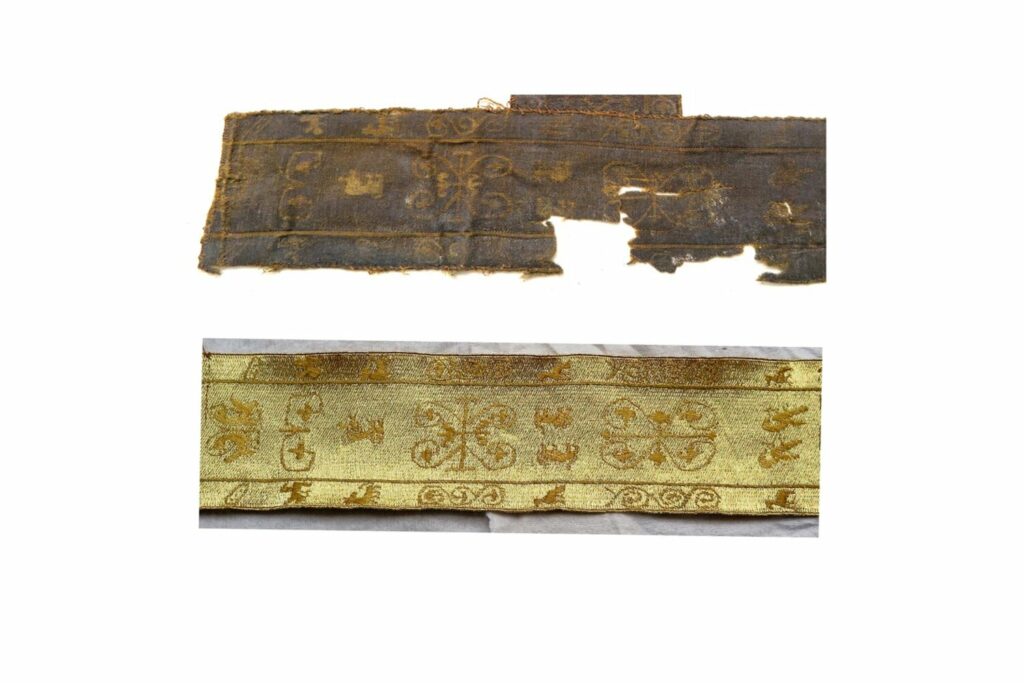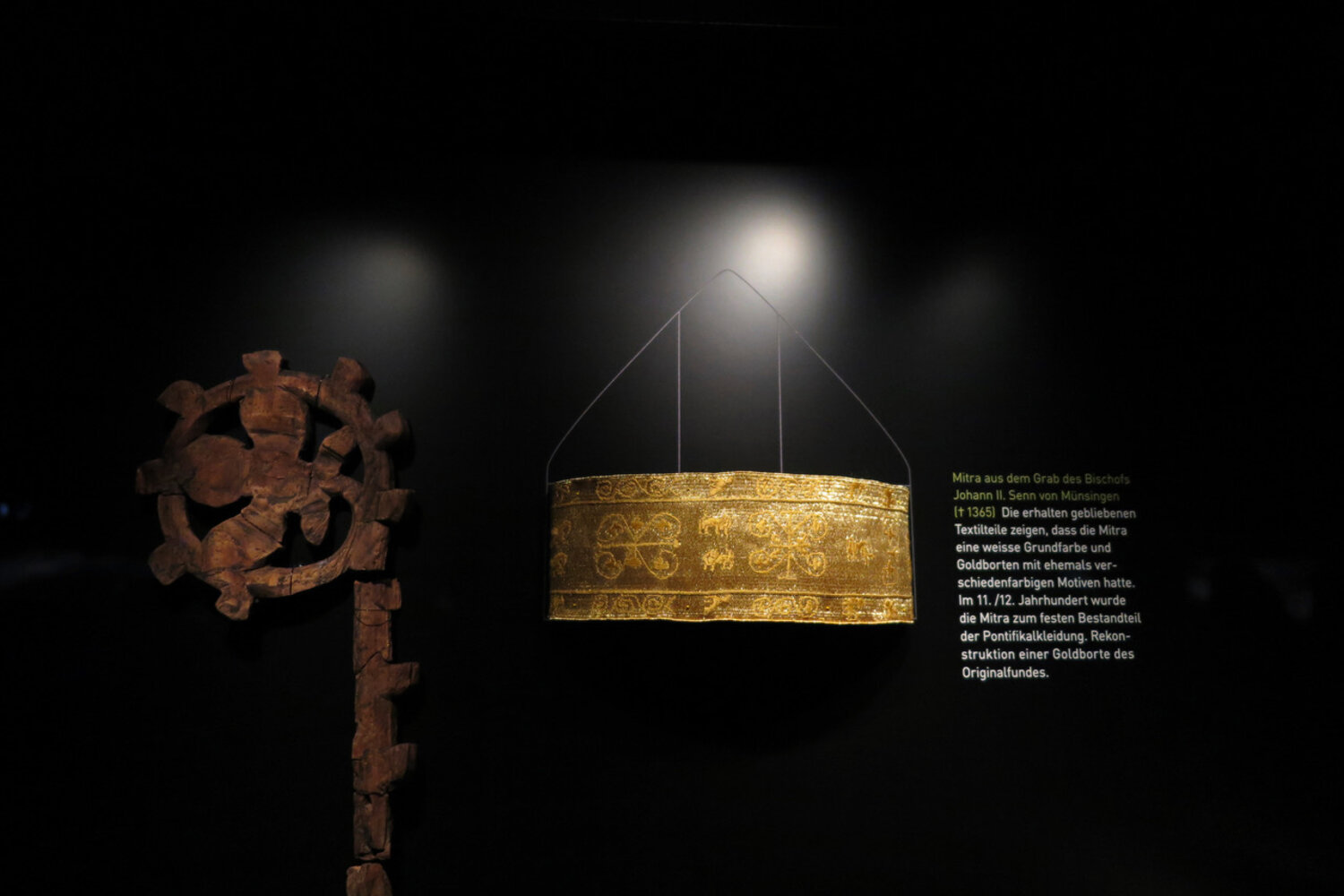H 20 cm x W approx. 55 cm, 12th century
The grave of Bishop Johannes II Senn von Münsingen (1335 to 1365) was uncovered under Basel Minster in the 1970s. Parts of his pontifical clothing, including his miter, were found. The existing borders of the miter were not suitable for exhibitions due to their fragile condition as original grave finds, which is why a possible reconstruction for this textile was decided.
Condition description
In the original documentation, for example, the golden impression of the border of the liturgical head covering is shown to be a much lighter shade of gold. Since 1970, the gold in its alloy appears to have darkened due to chemical reactions. The “Lampas” weaving technique used is extremely sophisticated, as the warp is very fine with 40 threads per centimeter and consists of a visible pattern chain and the invisible binding chain. There is also a visible weft in “Goldlahn” with a fine, invisible binding weft in the finest silk.
Reconstruction
The reconstruction was carried out in the textile studio. The aim was to recreate the fineness of the fabric, the gold, and the structure of its detailed ornaments, lions and birds, which were made in the 12th century using the highly sophisticated weaving technique “Lampas” and were taken to the bishop’s grave 200 years later.
In order to be able to complete the gold border in time a special woven gold ribbon from France was embroidered under a magnifying glass. The ornaments and figures were executed in using the finest silk grége in golden colour on this golden background. International connection with colleague Franz Ippoldt – (silk weaver – Lyon) made it possible.
To point out the spiritual energy in this Miter might have made it possible, to reconstruct this Titulus (placed on the forehead) in an unrealistic time span as a wonder in time.








